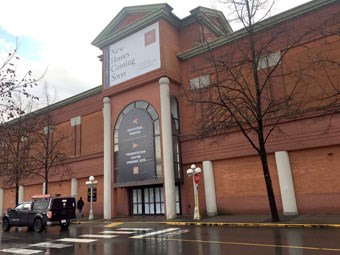Dear Editor,
Re: ’Recruitment crisis’ in Richmond, Business, Jan. 24, 2019.
According to 87 per cent of Richmond business owners responding to a Richmond Chamber of Commerce survey, the Richmond housing crisis impacts their ability to hire and keep workers.
Richmond has the highest resident worker shortage of any municipality in the Lower Mainland. For every four jobs in Richmond, only two are occupied by workers who live in Richmond, one is occupied by a worker who lives in Vancouver and one is occupied by a worker who lives in a municipality elsewhere in the Lower Mainland despite the lengthy commute.
We are importing around 50 per cent of our workforce from places that require us to make huge investments in transportation infrastructure to get them here. They would love to live in Richmond, but the main obstacle is Richmond’s severe rental housing shortage. While 53 per cent of Vancouver’s housing units are rentals, only 26 per cent of Richmond’s housing units are rentals. This shortage has driven up rents for the few units that are available.
We need thousands of new market rental units in the City Centre where many of the jobs are and there is easy access to mass transit. Ironically, thousands of new housing units will be constructed there over the next few years, but it is most profitable for developers to sell them to investors who frequently leave them vacant.
Last year, the B.C. government passed new legislation giving municipalities the power to require a large amount of market rental housing in a designated area. Richmond council recently approved the Richmond Centre redevelopment, which will create 2,200 housing units, but only required that 200 of them be market rental and 150 below market rental.
The remaining 1,850 will be offered for sale to investors. Only councillors Carol Day, Kelly Greene and Michael Wolfe wanted to require far more market rental units, while other councillors feared the developers might abandon their redevelopment plans. Should that happen, it would preserve the land for future development to meet our housing needs rather than wasting it now on maximizing developers’ profits.
Many owners of one-story commercial properties are looking for ways to increase revenue by building new mixed-use buildings with commercial on the ground floor and residential units above. Market rental housing will increase their revenue substantially even if it isn’t as profitable as selling condos to investors.
Although an important opportunity has been lost at Richmond Centre, Richmond council can still create large amounts of market rental housing in the proposed Lansdowne Centre redevelopment and the other large redevelopment proposals along the No. 3 Road corridor.
Council can also put pressure on YVR, which has both land and substantial reserve funds, to build rental housing for the thousands of workers in its concession operations from which it received $130 million in revenue in 2017. Many YVR workers only earn minimum wage and require below market rental housing, a burden that currently falls on the Richmond taxpayer. However, Richmond council will only act when citizens make it clear that much more rental housing must be a top priority.
John Roston
RICHMOND



